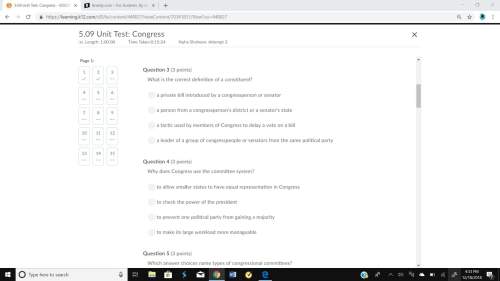
One fundamental phase of national advancement which
we may confidently expect is increased activity for the
betterment of the public health. Present conditions all
favor such a development. (World War I) has demonstrated
the prime importance of maintaining high standards of
health as means of keeping up national efficiency. The
men returning from the army have received sanitary
training as well as military training, and as they take up
civil pursuits again they are going to demand that civil
authorities give them health protection equal to that which
they have received while in the army.
Which historical interpretation does the source most support?
O A. Some Americans thought World War I could lead to improved
health care in the United States.
OB. Soldiers returning from World War I put a major strain on the U. S.
health care system.
O C. World War I contributed to disease epidemics that worried
American political leaders.
OD. Ohio was ahead of other U. S. states in terms of planning for its
citizens' long-term health care.

Answers: 1
Another question on History

History, 21.06.2019 13:00
In egypt, about 50 percent of the population lives in the nile valley. true false
Answers: 2


History, 21.06.2019 19:30
In the decision for dred scott vs.sanford, (1857) in which a slave petitioned for his freedom in a st. louis court, on the grounds that his owner had taken him into free territory, and thus he ought no longer be regarded as possessing "slave" status, but should be regarded as a free man, the court decided as follows (excerpt): "in the circuit courts of the united states, the record must show that the case is one in which by the constitution and laws of the united states, the court had jurisdiction--and if this does not appear, and the court gives judgment either for plaintiff or defendant, it is error, and the judgment must be reversed by this court--and the parties cannot by consent waive the objection to the jurisdiction of the circuit court. a free negro of the african race, whose ancestors were brought to this country and sold as slaves, is not a 'citizen' within the meaning of the constitution of the united states. when the constitution was adopted, they were not regarded in any of the states as members of the community which constituted the state, and were not numbered among its 'people or citizen.' consequently, the special rights and immunities guarantied to citizens do not apply to them. and not being "citizens" within the meaning of the constitution, they are not entitled to sue in that character in a court of the united states, and the circuit court has not jurisdiction in such a suit. the only two clauses in the constitution which point to this race, treat them as persons whom it was morally lawful to deal in as articles of property and to hold as slaves. since the adoption of the constitution of the united states, no state can by any subsequent law make a foreigner or any other description of persons citizens of the united states, nor entitle them to the rights and privileges secured to citizens by that instrument." why does the court say that the petitioning party in this case had no right to sue for his freedom? a) because he is too young b) because he is from a different state c) because he is "of the african race" with enslaved ancestors d) because he is, properly speaking, within his owner's jurisdiction
Answers: 1

History, 22.06.2019 03:30
Why is the end of the cold war tied to the american domestic economy during this time?
Answers: 1
You know the right answer?
One fundamental phase of national advancement which
we may confidently expect is increased activity...
Questions












Mathematics, 07.05.2020 07:01






History, 07.05.2020 07:01


Social Studies, 07.05.2020 07:01




